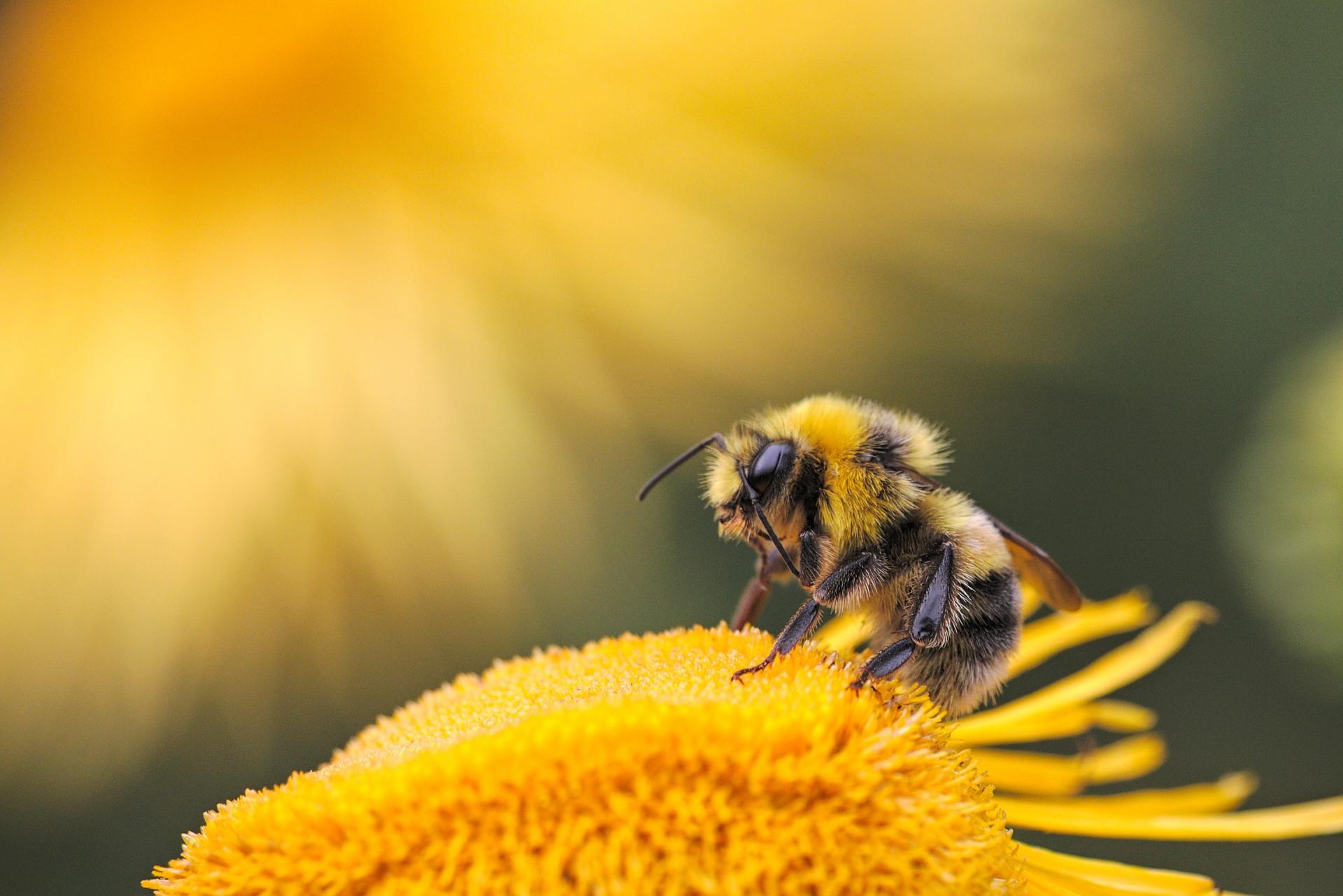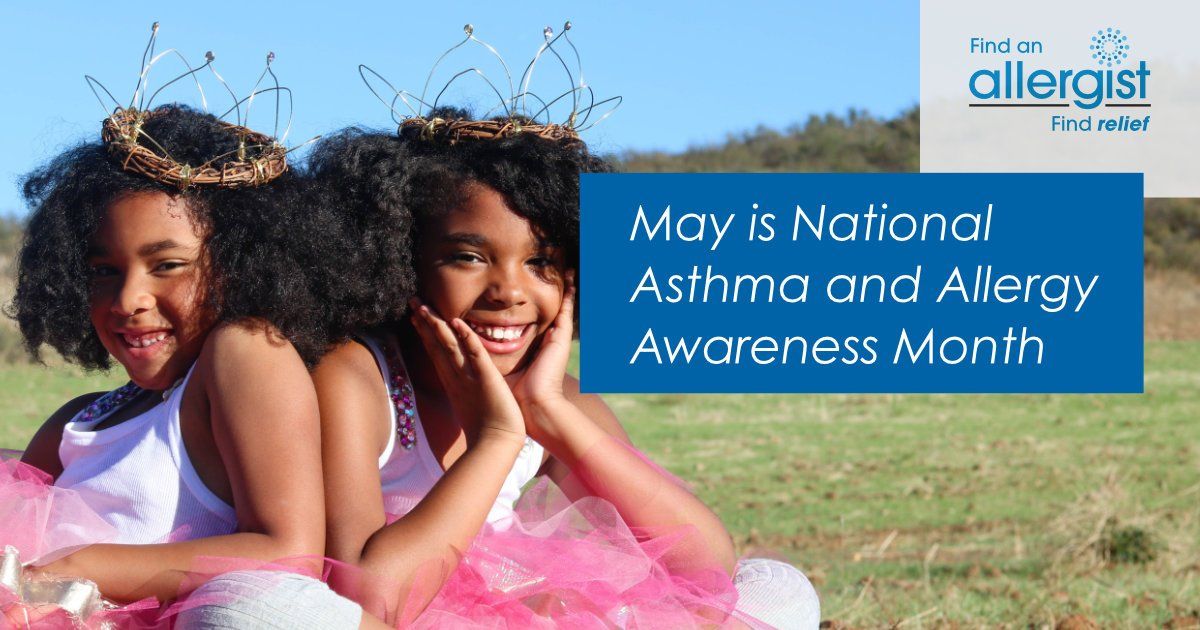Blog
Allergy and Asthma Health Blog
Allergy and Asthma Blogs by Haroon Khalid M.D.

By Haroon Khalid
•
17 May, 2022
Chronic Rhinosinusitis is defined by the following criteria: Twelve weeks or longer of two or more of the following signs and symptoms: • mucopurulent drainage (anterior, posterior, or both), • nasal obstruction (congestion), • facial pain-pressure-fullness, or • decreased sense of smell. AND inflammation is documented by one or more of the following findings: • purulent (not clear) mucus or edema in the middle meatus or anterior ethmoid region, • polyps in nasal cavity or the middle meatus, and/or • radiographic imaging showing inflammation of the paranasal sinuses A well managed Chronic Rhinosinusitis leads to symptom relief and improved quality of life

By Haroon Khalid
•
07 Apr, 2021
Now that the spring has sprung, you may be seeing stinging insects hovering around your house or in the yard. If you have been stung by one of more of these insects and have had an allergic reaction, you may be allergic to their venom and future exposures may be life threatening especially if your hobby or profession involves you being outdoors or at increased risk of exposure. There is testing and immunotherapy available for stinging insect venom allergy. Please reach out to a board certified allergist for a consultation

By Haroon Khalid
•
18 Mar, 2021
1. Wow Butter (Soy based spread, made in nut free facility) 2. Sun Butter (Sunflower based spread, Free from top 8 food allergens: peanuts, tree nuts, milk, eggs, wheat, fish, shellfish and soy) 3. Barney Butter (Almond based spread, Peanut-Free, Gluten-Free, Soy-Free, Dairy-Free, Egg-Free)

By Haroon Khalid
•
04 Jun, 2020
(Reuters Health) - Cloth masks may help prevent transmission of the SARS-CoV-2 virus by at least partially blocking droplets expelled by people when they speak, cough and sneeze, researchers say. While the weave of cloth masks may not be tight enough to block individual virus particles, most virions spread in aerosols (smaller than 5 micrometers) or larger droplets, and there is ample evidence that the masks can prevent such droplets from getting into the air or onto surfaces, the authors argue in an opinion piece published in the Annals of Internal Medicine Dr. Catherine Clase, an associate professor of medicine at McMaster University and a nephrologist at St. Joseph's Hamilton Healthcare, in Ontario, Canada, and her colleagues reviewed the available literature on cloth masks. While there is no direct evidence yet that cloth masks can reduce SARS-CoV-2 transmission, they write, the collective evidence indicating that mask wearing by infected people reduces contamination is convincing and should inform policy. There was also evidence, though not as strong, that cloth masks might protect wearers as well, the authors found. "We found some cloth masks, particularly when the cloth is in layers, can be remarkably effective in reducing contamination of the environment," Dr. Clase told Reuters Health. "We looked at studies that tested masks to see if mouth germs end up in the air. So, if I know they can decrease contamination, maybe I am going to altruistically wear one." In one study, researchers found that "filtration efficiency for single layers of different types of cotton cloth in a bioaerosol (0.2 micrometer) experiment was between 43% and 94%, compared with 98% to 99% for fabric from disposable medical masks," Dr. Clase and her coauthors write. Much of the research reviewed by Dr. Clase and her colleagues was decades old. Yet, they write, the results are highly relevant today. The data don't just show that masks can prevent outward transmission of pathogens. In animal experiments, researchers found that cloth masks prevented the inward transmission of aerosolized tubercle bacilli, Dr. Clase and colleagues note. "The evidence we found doesn't say all particles are going to be stopped," Dr. Clase said. "But some will be stopped. Most of the time you're not going to be exposed to viruses floating freely in the air, but rather, to virus in droplets or aerosols. If you can decrease the amount that's in the environment that's a good thing." While the evidence shows that masks can help, Dr. Clase cautioned, "they are no substitute for social distancing and handwashing but should be used along with those measures." Dr. Clase also advises people to make sure they wash their cloth masks after use and take care when they remove them. "If you think about the fact that you are using it to protect yourself from particles in the air, those particles are going to end up embedded in the outer surface," she said. "When you take a mask off, you want to remove the bottom strap first and then the top. You want to fold the inside surfaces together and put it in a paper bag until you can wash it." Dr. Clase also cautioned against mask wearing in children under 2 years of age and in people with breathing problems. Supratik Guha, whose recent experimental study showed that layered cloth masks can block a large proportion of small-sized particles, welcomed the new article. "I have been stressing that simple reasoning and evidence indicates that the use of a decent cloth mask in indoor or busy public places will reduce infection transmission," said Guha, a professor at the Pritzker School of Molecular Engineering at the University of Chicago. "If most of the population practices this, the multiplicative benefits can be enormous in reducing overall infection rates within a community." "It is a simple, uncomplicated practice that can have a decisive impact - there is no magic or fuzzy science here," Guha said in an email. "This paper gives a clear-eyed assessment of the scientific data available so far on cloth masks, and supports a conclusion such as this." "An interesting point is that as you increase the layers you decrease breathability," Dr. Clase said. "Three layers is better than two and four is maybe better yet, but as you increase the number of layers, it becomes harder to breathe through the material - which means people may be less likely to wear them and keep them on." SOURCE: https://bit.ly/2M6yS0G Annals of Internal Medicine, online May 22, 2020. (Editing by Christine Soares)
By Haroon Khalid
•
28 Mar, 2020
Certain areas of the United States are experiencing a shortage of albuterol quick-relief inhalers, according to the American College of Allergy, Asthma & Immunology (ACAAI). The shortage occurred due to supply chain issues and increased use of albuterol inhalers in hospitals to treat COVID-19 patients in respiratory distress. The shortage involves Teva’s ProAir HFA, GlaxoSmithKline’s Ventolin HFA and generics produced by Teva, Prasco and Par Pharmaceuticals, according to the American Society of Health-System Pharmacists (ASHP). Merck’s Proventil HFA albuterol inhalers are unaffected by the shortage. Teva’s dry powder albuterol inhalers – ProAir Respiclick and ProAir Digihaler – are also not affected by the shortage. Manufacturers recognize the problem and are expediting delivery, releasing reserve supplies and exploring an extension of expiration dates with the U.S. Food and Drug Administration. ProAir HFA and its generic will be resupplied in pharmacies by late-March 2020, while Ventolin HFA and the other generics will be allocated as they become available, ASHP says. What to do if you’re unable to get your albuterol inhaler? Contact your allergist or primary care doctor – other inhaler options are available, according to ACAAI. Visit GoodRx.com to search for other pharmacies in your area that may be able to fill your prescription. Check your inhaler to see if it still contains medicine in it. If necessary, you can likely use your expired albuterol inhaler as it probably is still at least partially effective, ACAAI says. Follow your Asthma Action Plan and avoid your asthma triggers to prevent flare-ups. Remember to not overuse your albuterol inhaler, ACAAI advises. One canister should last for months. If you’re using your albuterol inhaler more than twice a week to relieve symptoms, that’s a sign your asthma may not be well controlled and you should see an allergist. Allergy & Asthma Network is calling on pharmacy benefit managers and payers to expand formularies to ensure all branded and generic albuterol inhalers are accessible for patients. The Network also encourages patients to ensure they have albuterol inhalers on hand but also to not hoard this lifesaving medication. During the COVID-19 pandemic, it is critically important that asthma patients continue to take their medications as prescribed – in addition to following CDC-recommended prevention guidelines such as regular hand-washing and social distancing. Source: Allergy & Asthma Network
By Haroon Khalid
•
14 Mar, 2020
1. Avoid close contact (6 feet) with people who are sick. 2. Avoid touching your eyes, nose, and mouth. 3. Wash your hands often with soap and water for at least 20 seconds. 4. Use an alcohol-based hand sanitizer that contains at least 60% alcohol if soap and water are not available. 5. Use tissues to cover coughs and sneezes, then discard tissue in the trash. 6. Clean/disinfect frequently touched objects and surfaces. 7. Make it your #1 priority to ensure you take asthma medications on a regular basis as advised by your asthma specialist to keep your asthma well controlled. For up-to-date information about the Coronavirus pandemic visit the CDC's coronavirus website.

By Haroon Khalid
•
01 Mar, 2020
These simple tips can ease your allergy and asthma symptoms – Nobody said spring allergies would be fun, but you never thought it would be this bad. What if you had some simple ways to avoid the sneezing, wheezing, itchy eyes and runny nose that come in the spring? “People think they’re doing everything they can to battle spring allergies but many still find themselves under siege from pollen and other allergens that appear once the weather starts to warm up. What they don’t realize is that by following a few simple rules from the American College of Allergy, Asthma and Immunology, they can make life a lot more pleasant, and their allergies more bearable. 1. Spring cleaning can spruce up your nasal passages – Sweeping up the cobwebs that gathered over the winter is good for more than just making your house look better. A deep house scrub can help eliminate existing allergens and clear the air. It’s especially important to get rid of mold, which builds up in bathrooms and basements and is a major allergen – especially in spring months when there’s lots of moisture. Because your pets have spent a lot of time indoors over the winter, fur, saliva and dander have probably collected. Vacuuming frequently and washing upholstery and pet beds can help. 2. The power of pollen – Some people with allergies may not realize that symptoms they think are allergy-related, might actually be asthma. Studies have shown that nearly two-thirds of those with asthma also have an allergy, which can make the spring season particularly difficult. If you can’t get rid of a cough, or get winded easily, you might have asthma related to allergies and should see an allergist. An allergist can identify the source of your asthma, and help you treat your allergies to improve symptoms. 3. Time to clear the air – Despite what you may have heard, the best way to clean the air in your home is not with an ionic air filter. The ionization changes the charge on a particle of pollen or dust and the particle sticks to the next thing it comes into contact with, often a wall or surface. There is usually not enough air flow to effectively filter many particles, so ionic filters don’t provide much benefit for allergy sufferers. There is also a health risk which comes from the ozone they produce. The best way to clean the air is with a HEPA room air cleaner rated with a Clean Air Delivery Rate (CADR). For those with central air, change your air filters every three months and use filters with a MERV rating of 11 or 12. 4. Wait, don’t smell that “fresh” air – Spring comes and you just want to open your windows and let in the fresh air. Don’t do it. Opening your windows allows pollen to drift inside, settle into your carpet, furniture and upholstery and continue to make you miserable. So keep your house and car windows shut during allergy season. Use your air conditioning with the new air filter you just put in. 5. Don’t trust “Dr. Google” – You know you shouldn’t believe everything you read on the internet, but it’s so tempting to look up cures for your symptoms. Instead, consult an allergist. An allergist is trained in how to identify your allergens and treat your symptoms. They can suggest the most appropriate medications to treat your allergies and asthma. You might even benefit from allergy shots (immunotherapy) which can greatly alleviate allergic suffering.

